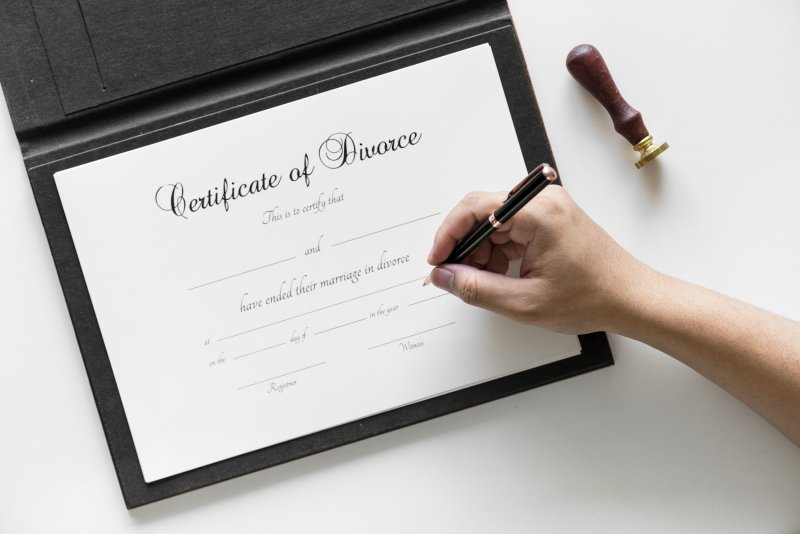Fathers having Child Residency following Divorce
Separating and divorcing are especially difficult, and many believe the mother will have custody (residency) of the child. However, some fathers want either part or full residency. Find out more, in our post.

Divorce or separation is an especially difficult time, for both sides and for the children. When it comes to sorting everything out throughout your separation, one thing that you’re going to have to decide is who will gain custody of your child/children. Whilst many may assume that the mother will take the child or children, it’s not always the case. Some fathers may wish to have either part or full residency for their child or children. If the mother disputes it becomes a legal matter.
We’ve spoken to THB Legal, expert family law solicitors, about what happens if the father wants to take full residency of their child/children following a divorce or separation. In this post, we’ll provide you with all the information for fathers looking to gain residency of their children or child. Find out all you need to know, right here.
The Law
Now, whilst many conventionally believe that the mother has residency of the children, this is not the case. The law is what decides which parent has full residency of the child, or if they have joint residency. It’s determined always by the court, with the child’s or children’s best interests at the core of the agreement. The term residency is used to refer to where the child’s or children’s main residency will be (e.g. with the father). However, the courts will decide on if the residency is fully joint and how much time the child or children spend at the other parent’s home. Whilst parents can assist in deciding residency status, the parents must fully agree otherwise the court will decide.
Why might the Father want full residency?
In some cases, the father may simply believe he would be the better option for the child. In the circumstances where the father keeps the shared home, or the mother wishes to move out of the area, the court may rule in favour of the father – as they may believe the move would disrupt the child. When the court decides on which parent will be granted with residency, the effects on the child are considered. So, a drastic change to lifestyle (e.g. moving away) may factor into the court’s decision. However, there are special circumstances in which child residency may be granted to the father of the child or children. If it’s believed the child or children would be in harm’s way living with the mother, then the father may be provided residency – however, sufficient evidence must be provided.

Mediation First
Before it’s necessary to go to court, many couples try to use mediation as a means to divide up anything following a separation or divorce. Many find that mediation works for discussing child or children’s residency arrangements. Mediation is a process which grants a safe space to discuss and come to a mutual agreement following a divorce or even separation – dividing assets and deciding on residency status included. Mediation is a much cheaper alternative to legal proceedings – hiring a solicitor and court etc. and it can also be a quicker process too. What mediation does is provide both parties with a space to discuss and agree on terms. The mediator, a neutral, unbiased third party will help both sides come to an agreement on matters including child residency.
We’d always advise trying mediation first, however, in some cases mediation does not always work and isn’t always a logical option. But mediation is a cheaper alternative and it prevents things progressing further to court. It may be the perfect chance for fathers to explain and discuss why they believe the child or children should have residency with them.
What comes next?
If mediation is not an option or hasn’t worked, it’s now time to look at what comes next. It may be the time to approach the court and seek and order to start the process of securing residency. The decision to grant the father residency status for the children will be based on the court’s decision regarding the following:
- The best decision for the child
- Physical and emotional needs
- Educational needs
- Sometimes the child’s characteristics (such as age, sex and background)
- If the child is at risk
- The capability of the parent who will be caring for the child
Following the court’s decision, either full residency or joint residency will be decided by the court. However, should the father be granted full residency the mother will have a legal right for visitation. The mother can petition to gain full residency of the child, or for joint residency, at any time.
For Unmarried Fathers
So, while married fathers have parental responsibility over children, which is a duty of care to their child or children, unmarried fathers do not have the same legal rights. Which means that unless they are listed as the father on the child’s birth certificate (after the date of 1st December 2003), they will have to go through the court to gain custody of the child or children. Unmarried fathers will be subjected to the following if they chose to secure residency through the court:
- Paternity – a test to see whether you are the biological father of the child despite having no name on the birth certificate.
- Relationship – the courts will ask questions about your relationship with the child or children, and you will answer questions about visitation.
- The Mother – the child’s relationship to their mother will also be taken into consideration. Whilst courts cannot act biasedly towards the mother, the child or children’s relationship with them can factor into their decision.
- Suitability – the mother’s suitability and yours will be considered when the courts make their decision about residency – evidence for ‘unfit parenting’ should be provided if applicable.
The decision to apply for full residency should always be made with your child’s best of interests at heart. Joint residency is a common choice that many parents choose in order to avoid being back and forth from court. However, there are certain circumstances where full residency may be best e.g. the mother is using drugs or mentally ill.
More to Read:
Previous Posts:







